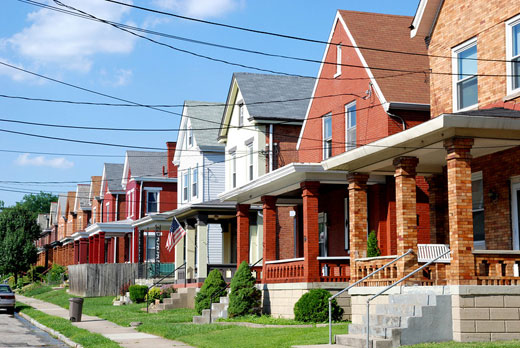Cincinnati addresses deep-rooted housing inequities through landmark settlement


By: Stacy M. Brown, NNPA
Cincinnati officials have settled a federal lawsuit spanning four years, addressing allegations of racial bias in the city’s residential tax abatement program. The lawsuit, which accused Cincinnati of favoring white homeowners, shed light on enduring disparities in homeownership between Black and white residents. Advocates said the resolution, signed on Feb. 8, signifies a crucial step towards rectifying historical injustices and fostering a more equitable housing landscape.
National data from the National Association of Realtors and Zillow revealed a stark homeownership gap between whites and Blacks. Nationally, 73 percent of whites own homes compared to 44 percent of Blacks, representing a 29-percentage-point disparity. However, Greater Cincinnati reportedly experiences an even wider gap, with only 33 percent of Black residents owning homes, creating a 40-percentage-point difference.
Elisabeth Risch, executive director of Housing Opportunities Made Equal, emphasizes that historical discriminatory practices, including redlining, persistently impact contemporary housing trends. Redlining, a policy preventing minorities from buying homes in wealthier, predominantly white areas, contributes to the deeply rooted segregation legacy in Cincinnati, Risch said.
Darrick Dansby, president of the Cincinnati chapter of the Realtists, also highlighted the potential gap worsening due to rising interest rates and low inventory, particularly affecting first-time and traditionally marginalized homebuyers.
The nonprofit, Housing Opportunities Made Equal, proposed comprehensive recommendations to narrow the homeownership gap, including tax abatement policy reforms, creating a grant fund for low- and moderate-income homeowners, zoning modifications for inclusivity, property tax relief, and establishing a transparent monitoring process to prevent discriminatory practices.
Now, the recent settlement in the federal lawsuit mandates that the city expand outreach about the tax abatement program in areas with larger populations of poorer and Black residents. Cincinnati City Council has earlier considered reforms, including fair and non-predatory lending expansions to Black and low-income homeowners.
The Council’s action was in response to city records that revealed that, by 2020, Cincinnati had granted 2,640 residential tax abatements totaling $183 million, with over $53 million directed to a predominantly white, affluent neighborhood. In contrast, two majority-Black neighborhoods received less than $1 million in tax abatements between 2014 and 2018.
As part of the settlement, the city will pay $110,000 to the homeowners who initiated the lawsuit. Cincinnati Mayor Aftab Pureval underscored the city’s commitment to making the residential abatement program more impactful and accessible to underinvested communities. Pureval pledged to continue efforts to bring incentives and information about home improvement resources to those who need them the most, ensuring a more just and inclusive housing landscape for all residents.
“Since taking office, we’ve worked to make our residential abatement program more impactful and accessible to the folks who need it the most. I’m proud of our administration’s steps to bring more incentives, an easier process, and information about other home improvement resources to our underinvested communities,” Pureval told Atlanta Black Star in a statement.
“As we move forward, those goals will continue to be our guiding light,” Pureval said.
